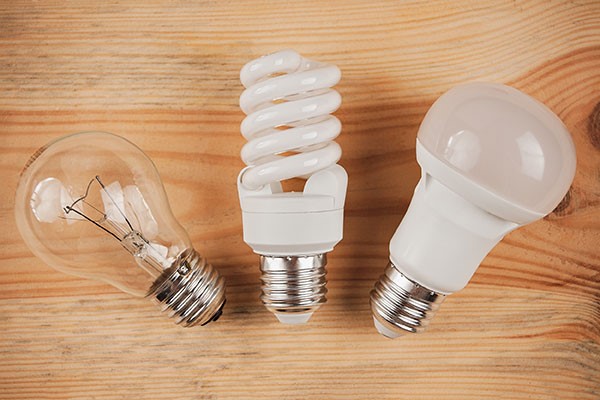Opinion
The Significance of Regular Efficiency Testing for Power Conservation

Electricity has become a necessity for our everyday life, and we heavily rely on it for our daily activities. However, with the increase in usage, comes a rise in electricity bills. Therefore, it is essential to keep a check on our power consumption to avoid unnecessary costs. One way to do this is by regularly conducting an efficiency test. In this article, we will explore the importance of efficiency tests and how it can help us save power.
Table of Contents
- Introduction
- What is an efficiency test?
- Benefits of conducting an efficiency test
- Lower electricity bills
- Increased lifespan of electrical appliances
- Reduced carbon footprint
- How to conduct an efficiency test
- Factors that affect the efficiency of electrical appliances
- Age of the appliance
- Maintenance of the appliance
- Usage pattern
- Signs that indicate an inefficient appliance
- Importance of professional help in conducting an efficiency test
- Conclusion
- FAQs
What is an efficiency test?
An efficiency test is a process of analyzing and measuring the energy consumption of an electrical appliance. The test involves checking the amount of energy the appliance consumes and the amount of energy it requires to perform its functions. By doing so, we can determine the efficiency of the appliance and take steps to improve it if necessary.
Benefits of conducting an efficiency test
Lower electricity bills
One of the most significant benefits of conducting an efficiency test is that it helps us reduce our electricity bills. The test identifies appliances that consume more energy than necessary and helps us replace them with more efficient ones. By doing so, we can save a significant amount of money on our monthly bills.
Increased lifespan of electrical appliances
Regular efficiency tests can also increase the lifespan of our electrical appliances. An inefficient appliance tends to overwork, causing it to wear out quickly. However, by conducting a test, we can identify the inefficiencies and take steps to improve them, thus increasing the lifespan of the appliance.
Reduced carbon footprint
An inefficient appliance consumes more energy than necessary, which leads to more carbon emissions. By conducting an efficiency test and improving the efficiency of our appliances, we can reduce our carbon footprint and contribute towards a cleaner environment.
How to conduct an efficiency test
There are two ways to conduct an efficiency test – manually or professionally. Manual tests involve checking the energy consumption of an appliance using a device such as a power meter. Professional tests, on the other hand, involve hiring a certified professional who can conduct a detailed analysis of the appliance’s efficiency.
Factors that affect the efficiency of electrical appliances
Several factors can affect the efficiency of an electrical appliance. Some of these factors are:
Age of the appliance
Older appliances tend to be less efficient than newer ones. Therefore, it is essential to regularly upgrade our appliances to newer, more efficient models.
Maintenance of the appliance
Regular maintenance of appliances is crucial to ensure their optimal efficiency. Neglecting maintenance can cause the appliance to become inefficient, leading to increased energy consumption.
Usage pattern
The way we use an appliance can also affect its efficiency. For example, leaving a refrigerator door open for an extended period can cause it to work harder, leading to increased energy consumption.
Signs that indicate an inefficient appliance
There are several signs that indicate an inefficient appliance. These signs include:
- Higher than usual electricity bills
- Appliance takes longer to perform its functions
- Strange noises coming from the appliance
- Appliance feels warmer than usual
- Lights flicker when the appliance is turned on
Importance of professional help in conducting an efficiency test
While manual tests are relatively simple, professional tests are more detailed and provide a more accurate analysis of the efficiency of an appliance. Hiring a certified professional to conduct an efficiency test can help identify hidden inefficiencies and provide solutions to improve the appliance’s efficiency. Moreover, professional help can also help us avoid any potential safety hazards that may arise from attempting to conduct the test ourselves.
Conclusion
In conclusion, conducting regular efficiency tests is crucial in helping us save up on power consumption. Efficiency tests not only help us save money on our electricity bills but also contribute towards reducing our carbon footprint. By identifying inefficient appliances and taking steps to improve their efficiency, we can increase their lifespan and reduce our impact on the environment. Therefore, it is essential to conduct regular efficiency tests and seek professional help when necessary.
FAQs
How often should I conduct an efficiency test?
It is recommended to conduct an efficiency test at least once a year.
Can I conduct an efficiency test myself?
Yes, you can conduct a manual efficiency test yourself, but it is advisable to seek professional help for a more detailed analysis.
Is it worth replacing old appliances with newer, more efficient models?
Yes, replacing old appliances with newer, more efficient models can significantly reduce energy consumption and save money in the long run.
Can an inefficient appliance be repaired?
Yes, an inefficient appliance can be repaired, but it is advisable to consult a professional before attempting to do so.
Can conducting efficiency tests help me avoid potential safety hazards?
Yes, conducting efficiency tests with professional help can help identify potential safety hazards and avoid any accidents.
-

 Health & Fitness6 days ago
Health & Fitness6 days agoBudget Cuts Slash Vital Health-Tracking Programs in the U.S.
-

 Business5 days ago
Business5 days agoUS Stock Market Soars on Positive Jobs Data and Trade Optimism
-

 Healthcare6 days ago
Healthcare6 days agoMajor Cuts to U.S. Health Programs Raise Concerns Over Public Health Tracking
-

 Business6 days ago
Business6 days agoUS Stock Market Soars as Jobs Report Surprises and Trade Tensions Ease
-

 Business3 days ago
Business3 days agoS&P 500 Rallies as Fed Holds Rates Steady Amid Trade Talks
-

 Stock Market4 days ago
Stock Market4 days agoUS Stock Market Dips as Tariff Fears Resurface
-

 Civil Rights3 days ago
Civil Rights3 days agoSupreme Court Upholds Controversial Ban on Transgender Military Service
-

 Politics5 days ago
Politics5 days agoHouse Passes Controversial Trump Budget Bill Amidst Bipartisan Tensions















